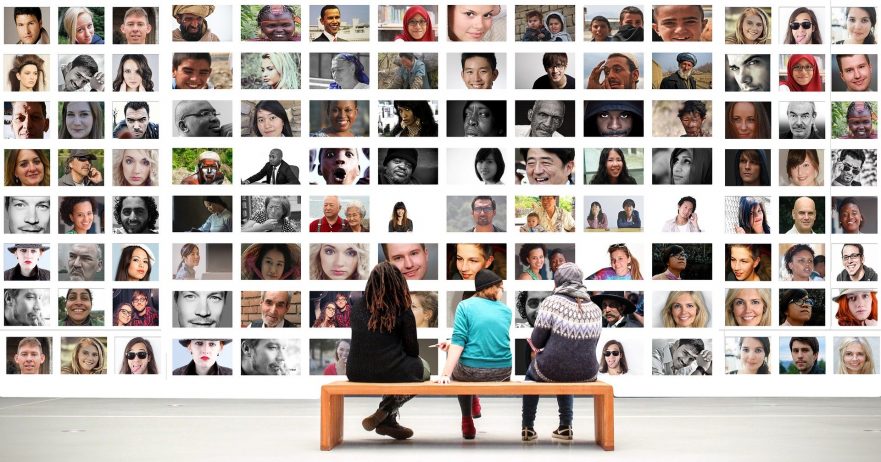by Ozay Mehmet*
Who speaks for Humanity? Each nation for itself, everyone alone isolated. Yet, COVID19 may be just the shock Humanity needed to exit a leaderless world, badly managed: Thanks to modern digital technology, a new world is emerging. Optimistically, virtual global democracy may be within reach in a post-Pandemic world.
On 26 March 2020, the G20 nations had an unprecedented tele-Summit, chaired by Saudi Arabia. The Saudi King pledged to inject $5T to fight COVID 19, promising to provide more. Earlier G7 likewise met.
Hopefully, this is a start of a novel global cooperation to fight against the Pandemic in the short-term. Immediate humanitarian intervention is essential to prevent epicenters moving into war zones, refugee camps and slums. Many Third World countries lack healthcare, sanitation and basic services.
Belatedly, the UN Security Council will meet on 9 April 2020 in a video-emergency session. Hopefully, it will endorse the UNSG’s cease-fire call on all conflicts. And declare a Global War on COVID19. Time is now for effective global action, sharing information, pooling expertise and adequate co-financing solutions.
Of course, national leaders and authorities must lead the war against COVID 19. Acting locally, as in social distancing and lockdowns, is essential. But we must also think globally to avoid the worst-case Pandemic scenario in which only the richest survive.
The global economy is in recession, at a stand-still. Restoring normalcy would require global cooperation especially in travel, tourism and trade. Massive injection of liquidity will be required to avoid second or third waves of the pandemic.
For a sustainable and safe post-COVID 19 world, Humanity awaits visionary global leadership. Just as the Atlantic Charter in 1941 lead to the post-WW2 UN system and multilateralism, so now we all stand, in fear in a leaderless world.
The US President Trump is no F. D. Roosevelt. FDR and his wife Eleanor were visionary enough to shape the post-war multilateral system, the UN, WB, IMF and the rest, American-led, and US-financed.
At this juncture, there is no equivalent of FDR leadership. Trump only cares solely for his own constituency, and the Saudi King is too old to be a global leader.
A ray of hope exists for transition to a safer and better world, now attainable thanks to modern information technology. Tele-Summits and virtual conferencing may become the future pattern of a brand-new system of decision-making and governance. Indeed, virtual voting may push Humanity to take a step toward global democracy.
In an age of smart phones and digital technology, literate Chinese, Indians and everyone else around the globe could vote in more transparent, more inclusive meetings at the UN or other international fora. This can only help globalize democracy, i.e. governance by the people:One vote, one person; everyone counts, regardless of race, gender or status. Equality rules.
In the post-Pandemic world, much will change, more digital. A safe bet would be that decision-making via virtual meetings and conferences will become widespread. That, in turn would revolutionize international organizations, the UN, WHO, IMF and other bodies. That would be welcome: For the past several years, the world has been badly managed: From ecology to gender equality, from terrorism to refugee crises, trade wars and sanctions, global problems have been mounting, unresolved. Third World development has long been under-funded.
The response of Rich Countries, the USA and the EU, has been dreadful: Building walls and using brute force to keep their wealth to themselves, ignoring the health and welfare of the Rest of Humanity.Now, the Pandemic has exposed the fragility of our economies. Like it or not, the Rich are in the same (global) boat as the Poor. Third World development must be re-energized with massive resource transfer as in the days of Marshall Plan in the postwar period. Ideally, a way must be found to tax multinational corporations for international development.
Modern communications technology is the light at the end of the tunnel. But technology is no more than a means. It needs visionary global leadership to graduate Humanity to a safer and better world.
*Ozay Mehmet, Ph.D (Toronto),Senior Fellow, Centre in Modern Turkish Studies, Distinguished Research Professor, International Affairs (Emeritus), Carleton University, Ottawa, Ont., CANADA
Image by Gerd Altmann from Pixabay

